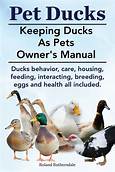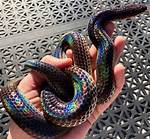How to Keep Pet Ducks From Flying Away
Ducks are great pets. They are friendly, intelligent, and can be very entertaining. However, one of the biggest challenges of owning a pet duck is keeping them from flying away. Ducks are natural fliers, and they can easily get away from you if they are not properly contained.

Tips for Keeping Pet Ducks From Flying Away
There are a few things you can do to keep your pet ducks from flying away. Here are some tips:
1. Clip Their Wings
One of the most effective ways to keep your pet ducks from flying away is to clip their wings. This is a straightforward procedure that can be done by a veterinarian or at home. When you clip your duck's wings, you remove the primary feathers that allow them to fly.
There are two main types of wing clipping: - **Primary Wing Clipping:** This is the most common type of wing clipping. It involves removing the primary feathers on one or both wings. This will prevent your duck from flying long distances, but it will still be able to fly short distances. - **Secondary Wing Clipping:** This type of wing clipping removes the secondary feathers, which are located on the inside of the wing. This will prevent your duck from flying at all.
The type of wing clipping that is best for your duck will depend on its individual needs and abilities.
2. Provide Them With a Safe and Secure Enclosure
Ducks need to have a safe and secure place to live. This includes a coop or pen that is large enough for them to move around comfortably and that is escape-proof. The coop or pen should also be protected from predators, such as hawks, owls, and coyotes.
Here are some tips for creating a safe and secure enclosure for your pet ducks:
- Make sure the coop or pen is large enough for your ducks to move around comfortably. A general rule of thumb is to provide at least 4 square feet of space per duck. - Make sure the coop or pen is escape-proof. This means that there should be no holes or gaps that your ducks can get through. - Provide your ducks with a variety of perches and nesting boxes. This will give them a place to roost and lay eggs.
3. Encourage Them to Roost
Ducks are naturally inclined to roost at night. This means that they will find a high place to sleep, such as a tree branch or a perch in their coop. You can encourage your ducks to roost by providing them with a comfortable place to sleep. This could be a perch, a nesting box, or even a cardboard box filled with straw.
When your ducks are roosting, they are less likely to fly away. This is because they are more relaxed and less likely to be startled.
4. Train Them to Stay Home
You can also train your pet ducks to stay home. This can be done using positive reinforcement. When your duck behaves the way you want, reward it with a treat. You can also use clicker training to train your duck to stay home.
Clicker training is a simple and effective way to train animals. It involves using a clicker to mark the desired behavior and then rewarding the animal with a treat. To clicker train your duck to stay home, follow these steps:
- Hold the clicker in one hand and a treat in the other. - When your duck behaves the way you want, click the clicker and then immediately give it a treat. - Repeat this process several times until your duck learns to associate the click with the treat. - Once your duck is comfortable with the clicker, start using it to train it to stay home. When you open the door to the coop or pen, say "stay" and then click the clicker. Immediately give your duck a treat. - Repeat this process several times until your duck learns to stay in the coop or pen when you open the door.
5. Supervise Them When They Are Outside
Even if you have done everything to prevent your pet ducks from flying away, it is still important to supervise them when they are outside. This is because there is always the chance that they could find a hole in the fence or be startled by a predator.
When you are supervising your ducks, keep an eye on them at all times. If you see anything that could cause them to fly away, such as a predator or a loud noise, call them back to you immediately.
By following these tips, you can help to keep your pet ducks from flying away. This will ensure that they stay safe and happy in your home.
Declaration: All article resources on this website, unless otherwise specified or labeled, are collected from online resources. If the content on this website infringes on the legitimate rights and interests of the original author, you can contact this website to delete it.





